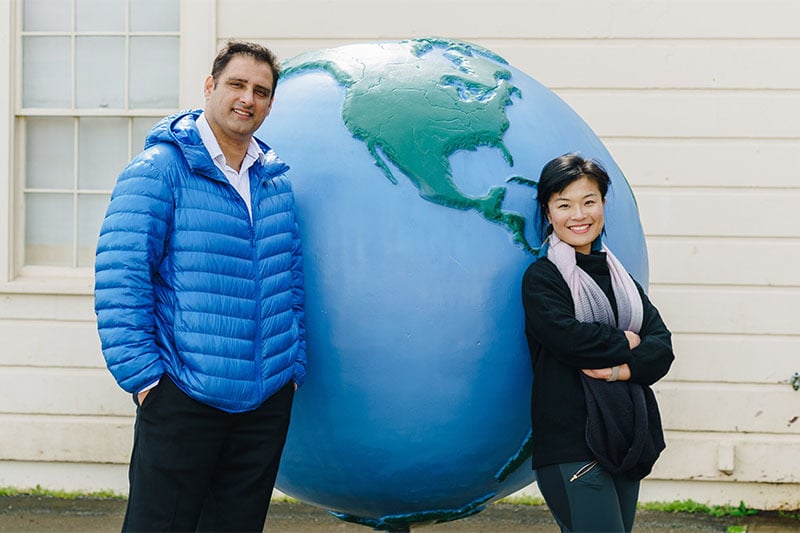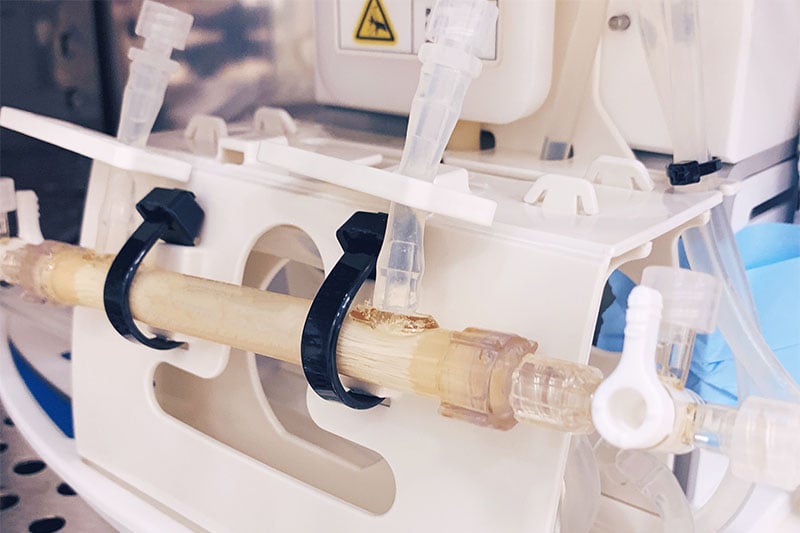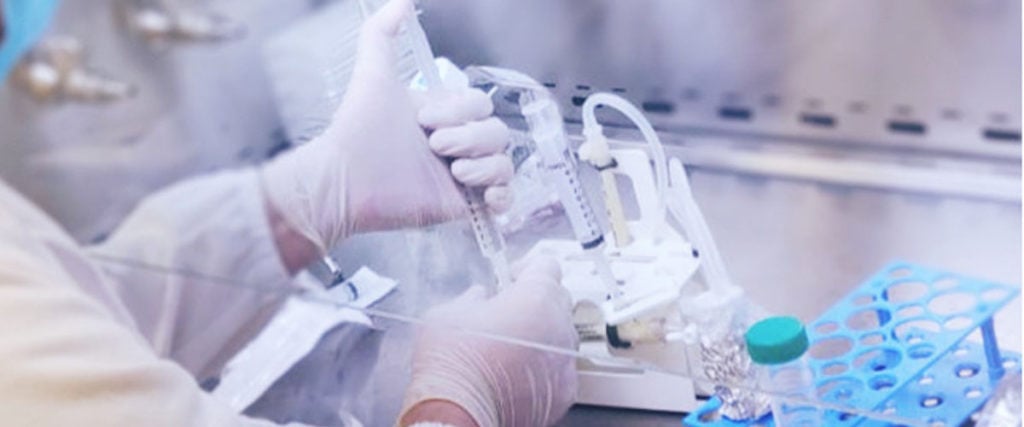Disrupting the USD 700 billion dairy industry, biotech startup TurtleTree Labs is pioneering acellular technology to create both cow’s and human’s milk.
If you thought lab-made meat and seafood were already pushing food technology to its furthest, think again. Singapore-based biotech startup TurtleTree Labs is the first company in the world to be pioneering cell-based milk – and that includes both bovine milk and human milk.
Founded in January 2019 by Lin Fengru and Max Rye, TurtleTree Labs has raced to the forefront of the food tech scene, landing USD 3.2 million in seed funding after making a breakthrough in cell-based milk technology research. Last month, the startup also won the prestigious Temasek Liveability Challenge, which comes with a grand prize of USD 1 million.
Here, we talk to co-founder Lin Fengru to find out more about the ins and outs of the food tech industry, their patented cell-based milk production, and how COVID-19 has exposed the growing importance of food technology.
How did you get into food technology?
My background has always been in tech – I used to work for Salesforce and Google. A few years ago, I started to learn how to make cheese and got to learn about milk on a deeper level. Finding good milk to make cheese was very hard – there were lots of challenges around factory farming and hormones being pumped into cows.
Then two years ago, I met my co-founder Max who was at Google making a speech about how cell-based companies like Memphis Meats and BlueNalu were using stem cells to make meat and seafood. After the talk, I asked him if we could use similar methods to make milk. Back then there was nobody else doing it, so we decided to do some research around this area together. We pulled in some scientists, and last year we made a breakthrough and found our patterns.

TurtleTree Lab Co-Founders Max Rye (left) and Lin Fengru (right)
What are the processes behind creating cell-based milk? Why hasn’t been attempted before?
Our technology involves sourcing cells from milk itself. This could be from all mammals, including goats, sheep, camels, cows, and even humans. We would then isolate cells from the milk and grow these cells into a large number. Subsequently, we would expose these cells to our patented, in-house lactation media. These cells then act like a factory where they will process through the lactation media, keep on multiplying, and convert the lactation media into milk. We are essentially recreating the environment inside a cow udder or a human breast outside the body.
The idea of lactating cells outside of the animal or human body has actually been thought about for 10 or 20 years, but the problem with this has always been with scaling up. The yield of these cells are quite small, and it’s only in recent years there have been certain technologies around cell engineering for us to overexpress certain components, increase the yield, and make it cost-effective in the near term. We currently have a five-litre bioreactor that is continuously churning out milk, which would be linearly scalable to 50,000 litres next year.
How do these processes compare with other cell-based food technologies?
One of the main challenges for cell-based meat industries is that their cells don’t recreate in a continual process. After the cells multiply, the meat produced is then made into a patty for people to eat. After that, they have to start from scratch again, and that makes their cost really high.
Our method of creating milk allows us to reuse the cells for hundreds of cycles as milk-lactating factories, and this really allows us to drive down the cost, reach cost parity a lot easier, and go to the market a lot faster. As consumers, what people care about is getting the same product without having to change their habits, and we’re able to offer milk that has the same nutritional values, the same taste, and also similar pricing.
Dairy alternatives have been on the rise in recent years. What makes your product different?
When it comes to plant-based dairy alternatives, they are great for replacing the fluid, milk-drinking market. But when it comes to functionality, by-products such as cheese, butter, cream, and yoghurt need to be recreated with fresh raw milk. You simply can’t make good gruyere cheese, for example, by using oat or almond milk. There have been companies trying to make plant-based cheeses, but the end-product is really just a nut paste and doesn’t taste like real cheese.
Also, when you look at the market share, although plant-based milk has been in the market for one or two decades already, they actually have less than 1% market share out of the USD 700 billion dollar dairy industry. Most of that market is propped up by the high-value by-products like cheese, butter, and yoghurt. By producing animal milk, our technology is aiming to plug into the manufacturing of these by-products as well.
What about human milk? What is wrong with using baby formula?
When you look at instant formula, it is a formulation of whey protein from cows or vegetable extracts. We want to be able to replace that with human sources because consuming milk from a different animal can lead to gut and digestion problems with babies. Having an exact replication is much better for the baby’s gut health and brain growth.

Being based in Singapore, how has this benefited your company as a food tech startup?
Being in Singapore gives us a lot of unfair advantages. Singapore is an island country so its food security has always been a challenge. The government has set it as a goal to have one-third of its food grown within the country by the year 2030. So, governmental agencies like the Agency for Science, Technology and Research (A*STAR) and Enterprise Singapore are really lined up behind food tech startups to help us succeed.
The government’s support is not just limited to plant-based and cell-based food tech, but also things like vertical farming, alternative sources of compost or fertiliser, and gene or cell-edited plant crops for higher yields. It invests in a lot of these technologies so that it can optimise the whole food production cycle and make more food in Singapore.
There’s also other forms of support from the National University of Singapore and National Research Institute, as well as different biotech technologies that put us in a good position.
Why is food technology so important, especially today?
When our grandparents were young, there were two billion people on this planet. Now, 50 years on, there’s seven billion on this planet. Within the next few years, there will be 10 billion people on this planet. The earth is simply not able to sustain and feed so many people. There’s no way we can continue this way without food technology.
The logistical challenges around moving perishable food items are also massive. With the coronavirus, we hear stories of eggs being dumped in Thailand and milk being dumped in the US. We also hear many cities suffering from food security challenges. If we are able to have a more circular economy or create food closer to the source, it alleviates these food security challenges because it’s more reliable and reduces the logistics needed for moving food across the world. One of our biggest investors – Prince Khaled – wants to be able to introduce this technology to the Middle East as it’s had a history of food security challenges.
What’s next for TurtleTree Labs?
Our company will be heavily based on a licensing and royalty model. We want to work with various layers within the dairy industry to allow us to have a larger impact globally. This includes working with equipment manufacturers like Tetra Pak to build bioreactors for producing milk; dairy processors like Fonterra and Dairy Farmers of America to process milk; and lastly, consumer brands like Nestle and Mead Johnsons to co-develop the end products.
For now, we have started talking to some partners and finding factories to host our pilot plants and license our lactation media technology to. By mid-next year, we want to be able to start signing our first licensing deals, which is very exciting for us because that would be the time we can start to be revenue-positive and scale the company.
Related Articles
Impossible Foods: How Alternative Meat Will Radically Change the Food Industry
You’ve Had The Meatless Burger. Is It Time To Tuck Into Meatless Fish?
This Australian Founder Convinced Burger King’s CEO to Back His Meatless Burger





